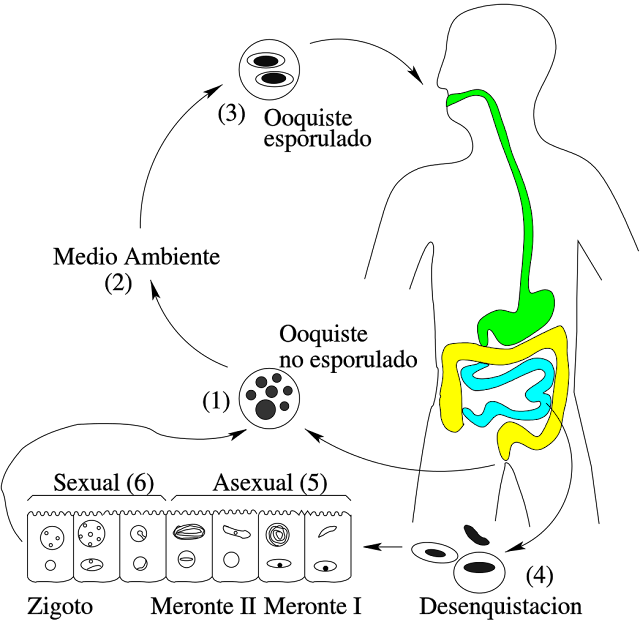Cyclospora symptoms and Treatment

Cyclospora infection causes watery diarrhea, and sometimes explosive.
A single-celled parasite that causes the infection can enter your body when you swallow food or water contamination. Fresh, unprocessed products are the culprits in many cases of Cyclospora infection.
Because diarrhea can be caused by many things, it can be difficult to diagnose Cyclospora infection. A particular test is required to identify the parasite Cyclospora in stool samples. Treatment for Cyclospora infection is in the form of antibiotics. Food security precautions can help to prevent disease.
Cyclospora Infection Symptoms
Some people infected with microscopic parasite Cyclospora infection causes no signs or symptoms develop. For others, the signs and symptoms - which usually begins within 2 to 11 days after eating contaminated food or drinking contaminated water - can include:
- Watery diarrhea
- Frequent bowel movements and sometimes explosive
- The attack of diarrhea alternating with constipation attack
- Loss of appetite
- Weight loss
- Bloated
- Burp
- Abdominal cramps
- Nausea
- Gag
- Muscle ache
- Mild fever
- Fatigue
- Feeling unwell (malaise)
Diarrhea may be an end in itself in a few days, or it may be chronic, lasting for weeks. If you have HIV or other conditions that lower the body's immune system, the infection can last for months if untreated.
Cyclospora Infection Causes
Single-celled parasite, Cyclospora cayetanensis, causing Cyclospora infection. You get it by drinking water or eating food that has been contaminated by an infected person.
No one knows exactly how Cyclospora is transmitted. A person infected with Cyclospora gives parasites in the feces. However, unlike some other foodborne parasite, Cyclospora are not contagious until days or weeks after a bowel movement. So you might not get a direct infection from an infected person, such as restaurant workers who do not wash their hands properly after using the toilet.
Before 1996, sporadic cases of Cyclospora infections occur only in people who are traveling to developing countries and those with HIV or other conditions that cause immune system problems. However, since 1995, lettuce, fresh basil and raspberry imports has been involved in an outbreak of Cyclospora in the United States and Canada.
Cyclospora Infection Risk
In the past, people who are traveling to developing countries are more likely to get Cyclospora infection. Today, infections are found throughout the world and anyone who was digesting contaminated food or water can get. However, despite outbreaks around the world, the risk of Cyclospora infection is still low compared with foodborne intestinal diseases and other water.
Cyclospora infection complications
Prolonged diarrhea of Cyclospora infection untreated can lead to dehydration. If you are a healthy adult, you can treat dehydration by drinking more fluids. Some people may need to be hospitalized to receive intravenous fluids because they are more at risk of severe dehydration.
Cyclospora Infection Diagnosis
Because there are so many possible causes diarrhea and other gastrointestinal symptoms, the diagnosis of Cyclospora infection requires laboratory testing to identify the parasites in the feces.
Cyclospora Infection Treatment
Treatment for Cyclospora infection is a combination of antibiotics known as trimethoprim-sulfamethoxazole (Bactrim, Septra). For people who can not take sulfa, some evidence suggests that ciprofloxacin (Cipro) or nitazoxanide (Alinia) may be useful.
To prevent or treat mild to moderate fluid loss due to diarrhea associated with Cyclospora infection, is generally sufficient for healthy adults to drink water. Avoid coffee, tea and other beverages containing caffeine and alcohol because it can increase dehydration. Fruit juice and soda can make diarrhea worsens.
For children and infants, you may want to use an oral rehydration solution such as Pedialyte. Avoid taking anti-diarrhea medication, because it can interfere with the body's attempt to rid itself of parasites.
source: http://www.mayoclinic.org/
Tags :
disease
Subscribe by Email
Follow Updates Articles from This Blog via Email

No Comments